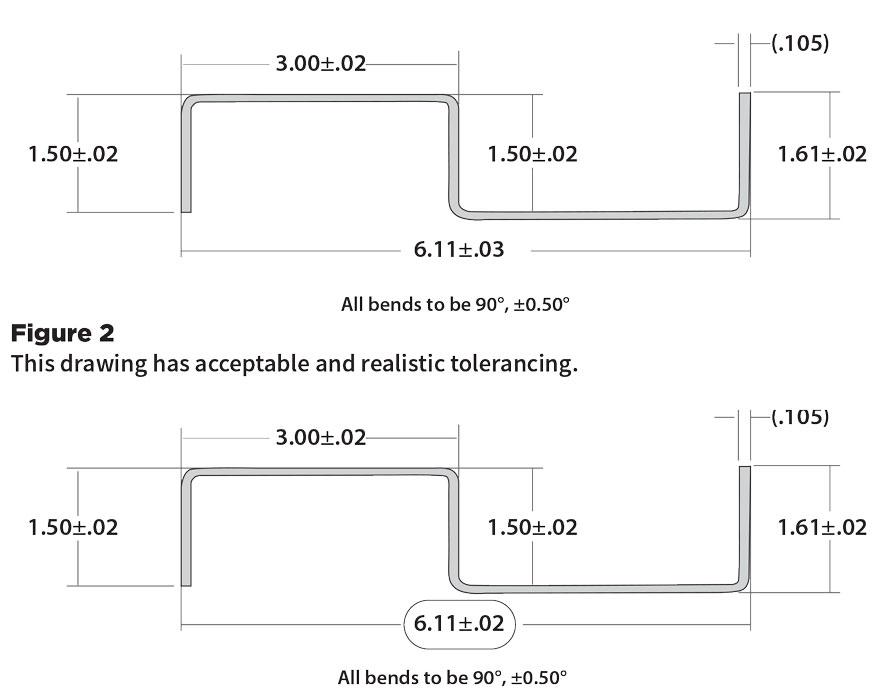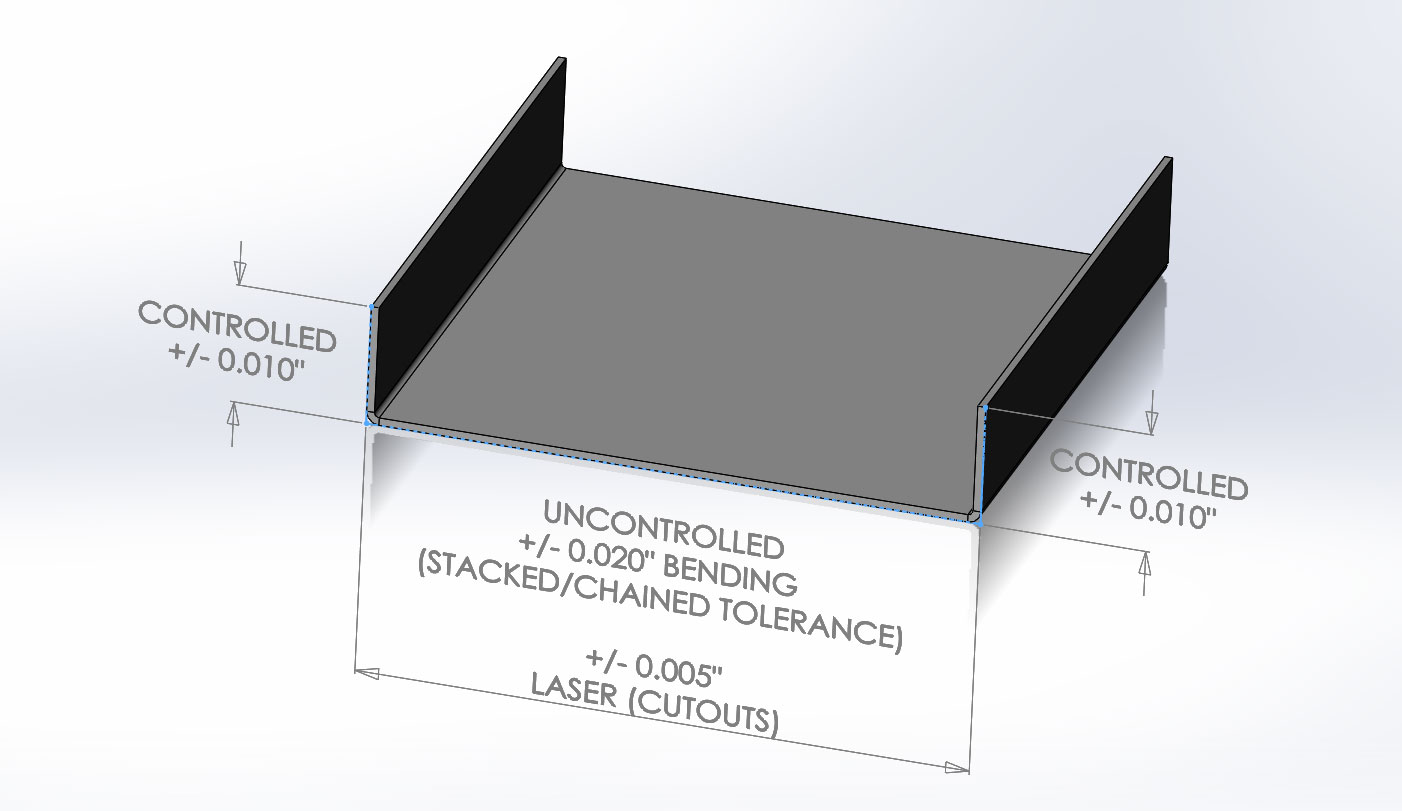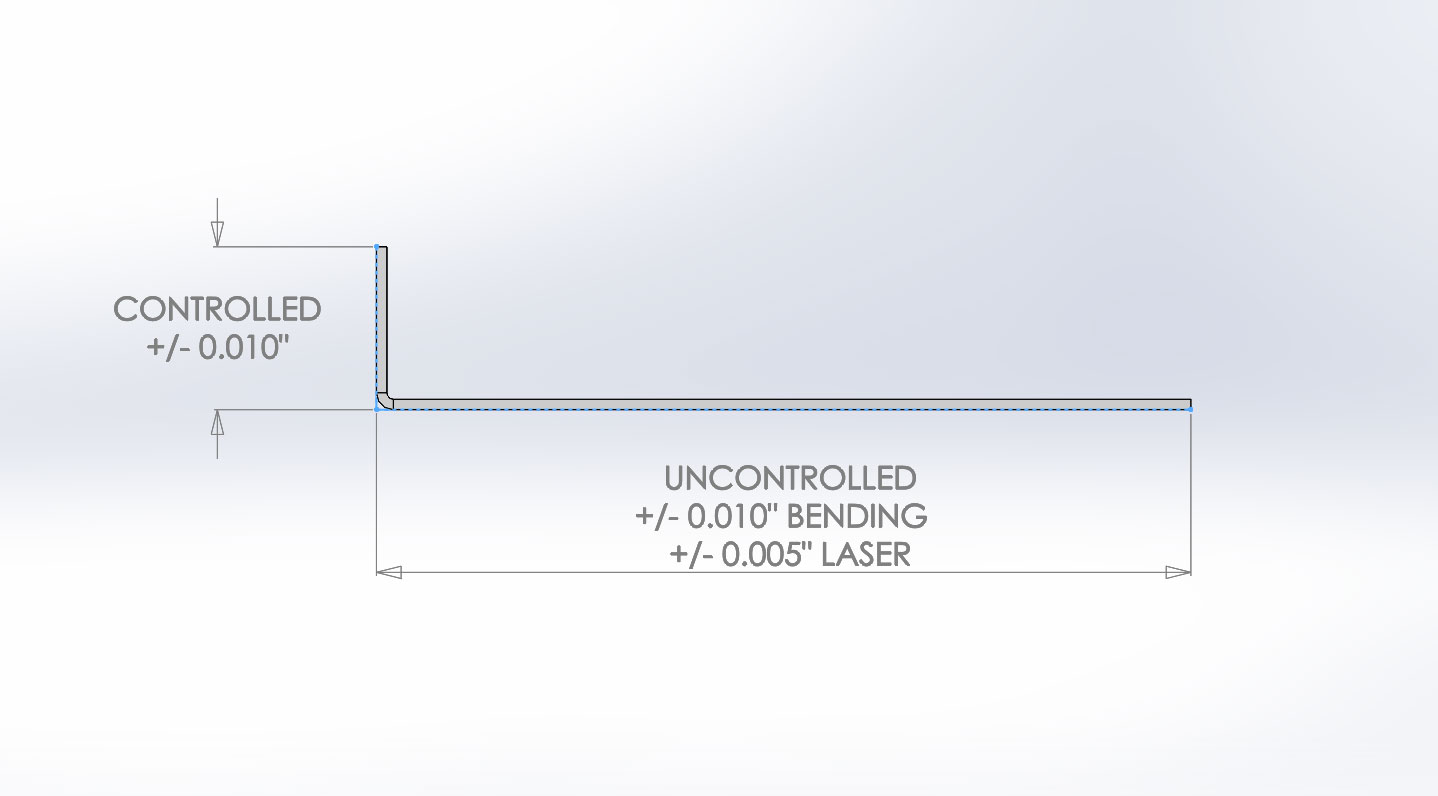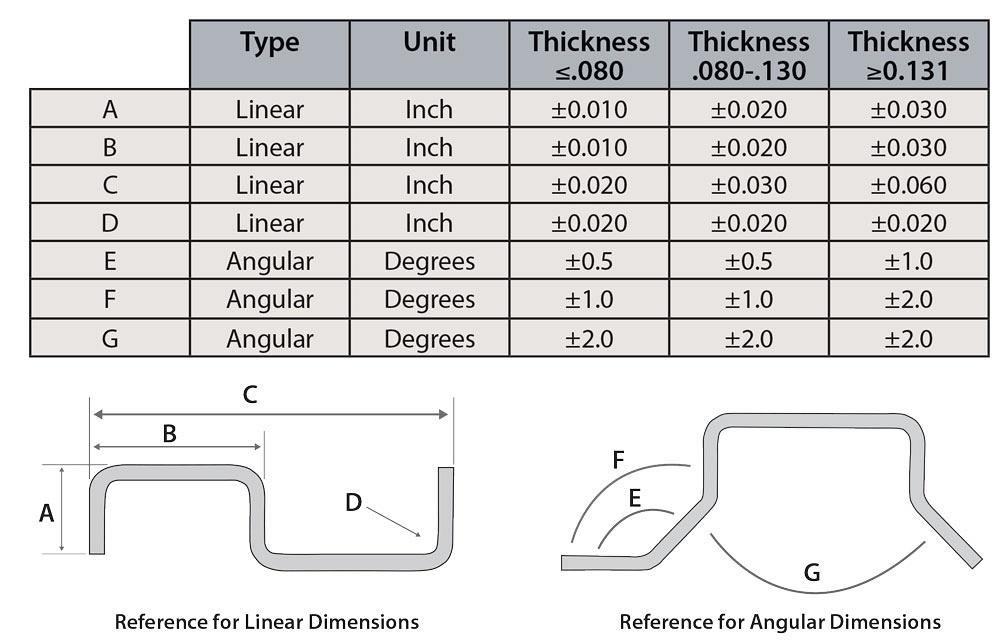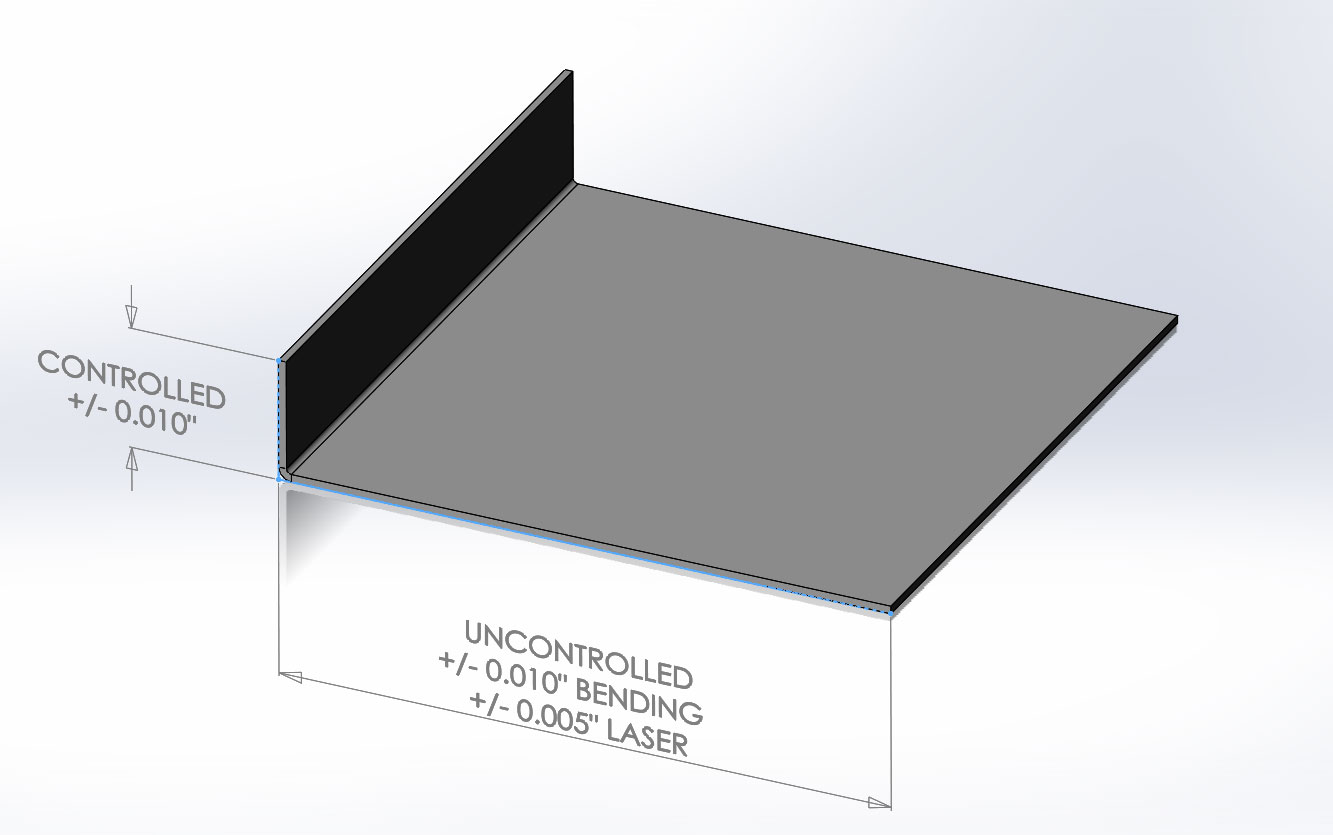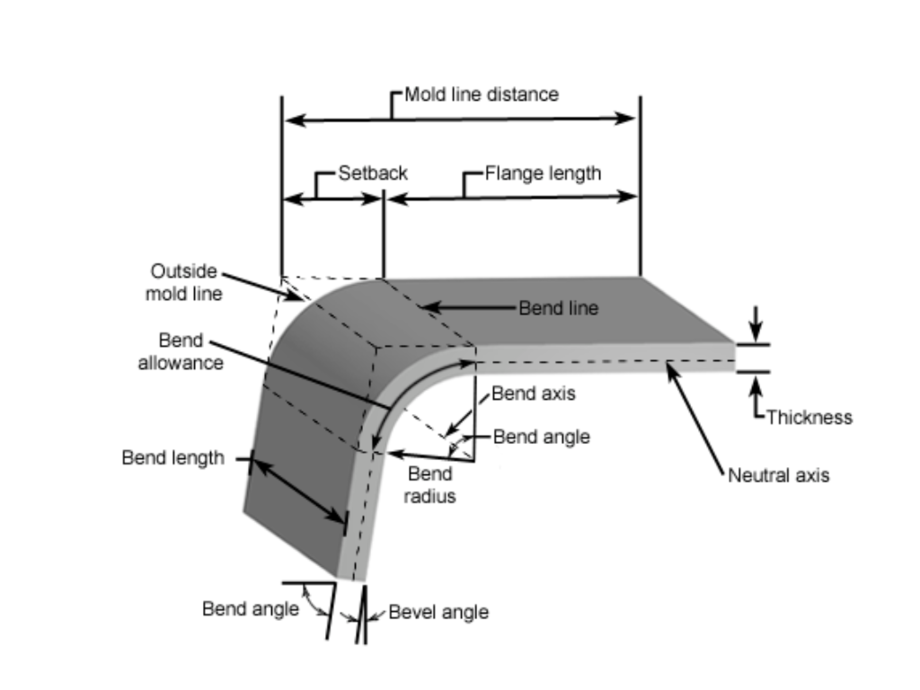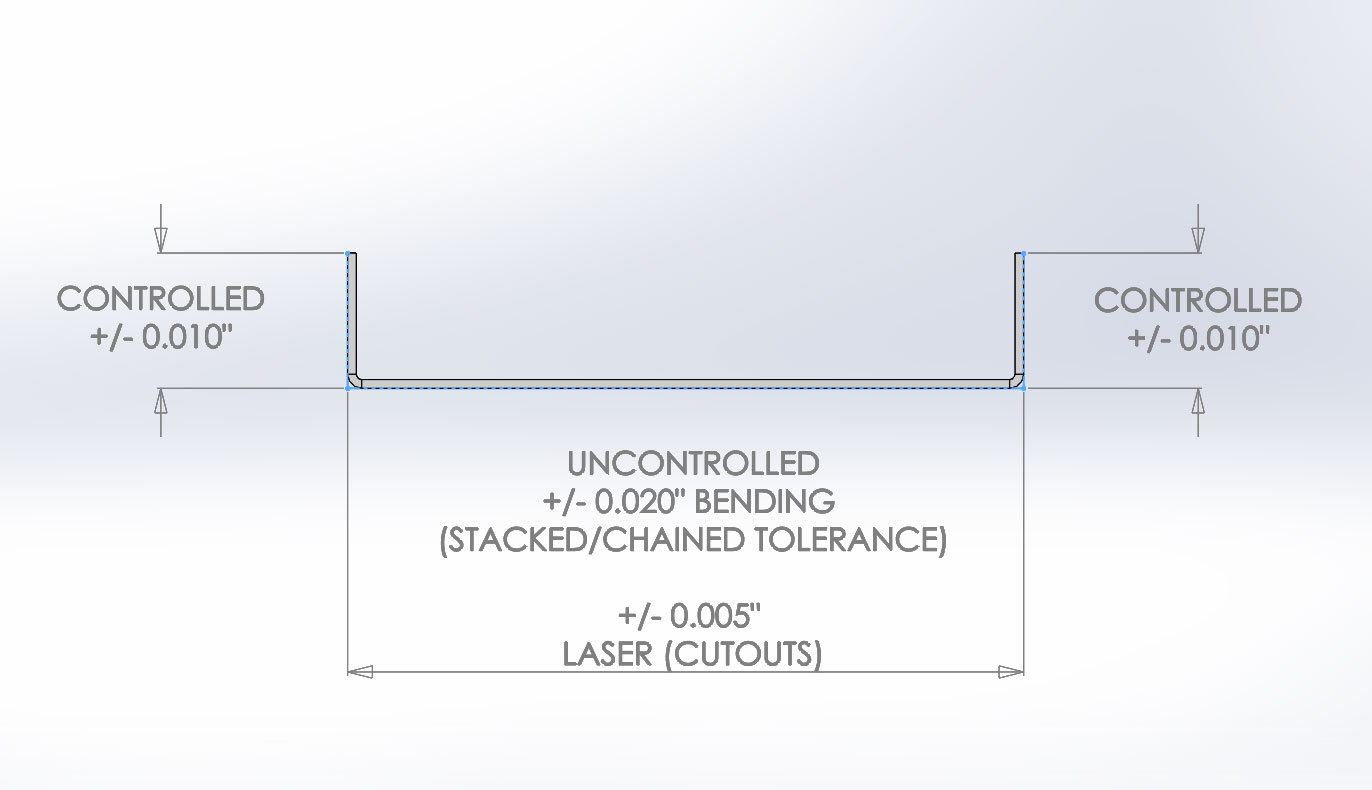Sheet Metal Bend Tolerances
Sheet Metal Bend Tolerances - Sheet metal tolerances should not be tighter than necessary to make the part functional. Tight tolerances raise the cost. For most sheet metal fabrication, bend tolerances usually fall within ±1° for the bend angle and ±0.015 (0.38mm) for bend length. We can obtain tighter tolerances (depending on part geometry/ construction), so. These tolerances are recommended and best practices.
Tight tolerances raise the cost. These tolerances are recommended and best practices. For most sheet metal fabrication, bend tolerances usually fall within ±1° for the bend angle and ±0.015 (0.38mm) for bend length. We can obtain tighter tolerances (depending on part geometry/ construction), so. Sheet metal tolerances should not be tighter than necessary to make the part functional.
Tight tolerances raise the cost. For most sheet metal fabrication, bend tolerances usually fall within ±1° for the bend angle and ±0.015 (0.38mm) for bend length. These tolerances are recommended and best practices. We can obtain tighter tolerances (depending on part geometry/ construction), so. Sheet metal tolerances should not be tighter than necessary to make the part functional.
Reasonable tolerancing for press brake bending
Sheet metal tolerances should not be tighter than necessary to make the part functional. Tight tolerances raise the cost. We can obtain tighter tolerances (depending on part geometry/ construction), so. These tolerances are recommended and best practices. For most sheet metal fabrication, bend tolerances usually fall within ±1° for the bend angle and ±0.015 (0.38mm) for bend length.
Sheet Metal Bending Tolerances
For most sheet metal fabrication, bend tolerances usually fall within ±1° for the bend angle and ±0.015 (0.38mm) for bend length. These tolerances are recommended and best practices. Tight tolerances raise the cost. We can obtain tighter tolerances (depending on part geometry/ construction), so. Sheet metal tolerances should not be tighter than necessary to make the part functional.
Sheet Metal Bending Tolerances
Sheet metal tolerances should not be tighter than necessary to make the part functional. We can obtain tighter tolerances (depending on part geometry/ construction), so. Tight tolerances raise the cost. For most sheet metal fabrication, bend tolerances usually fall within ±1° for the bend angle and ±0.015 (0.38mm) for bend length. These tolerances are recommended and best practices.
Reasonable tolerancing for press brake bending
For most sheet metal fabrication, bend tolerances usually fall within ±1° for the bend angle and ±0.015 (0.38mm) for bend length. We can obtain tighter tolerances (depending on part geometry/ construction), so. Sheet metal tolerances should not be tighter than necessary to make the part functional. These tolerances are recommended and best practices. Tight tolerances raise the cost.
Sheet Metal Bending Tolerances
Sheet metal tolerances should not be tighter than necessary to make the part functional. Tight tolerances raise the cost. We can obtain tighter tolerances (depending on part geometry/ construction), so. These tolerances are recommended and best practices. For most sheet metal fabrication, bend tolerances usually fall within ±1° for the bend angle and ±0.015 (0.38mm) for bend length.
Sheet Metal Bend Radius Full Guide Chart
Tight tolerances raise the cost. For most sheet metal fabrication, bend tolerances usually fall within ±1° for the bend angle and ±0.015 (0.38mm) for bend length. We can obtain tighter tolerances (depending on part geometry/ construction), so. Sheet metal tolerances should not be tighter than necessary to make the part functional. These tolerances are recommended and best practices.
Sheet Metal Tolerances Tedco Precision Sheet Metal
We can obtain tighter tolerances (depending on part geometry/ construction), so. For most sheet metal fabrication, bend tolerances usually fall within ±1° for the bend angle and ±0.015 (0.38mm) for bend length. These tolerances are recommended and best practices. Tight tolerances raise the cost. Sheet metal tolerances should not be tighter than necessary to make the part functional.
FEDERAL METAL WORKS
For most sheet metal fabrication, bend tolerances usually fall within ±1° for the bend angle and ±0.015 (0.38mm) for bend length. We can obtain tighter tolerances (depending on part geometry/ construction), so. These tolerances are recommended and best practices. Sheet metal tolerances should not be tighter than necessary to make the part functional. Tight tolerances raise the cost.
Sheet Metal Bending Tolerances
Sheet metal tolerances should not be tighter than necessary to make the part functional. For most sheet metal fabrication, bend tolerances usually fall within ±1° for the bend angle and ±0.015 (0.38mm) for bend length. We can obtain tighter tolerances (depending on part geometry/ construction), so. Tight tolerances raise the cost. These tolerances are recommended and best practices.
Don’t the sheet metal tolerances
For most sheet metal fabrication, bend tolerances usually fall within ±1° for the bend angle and ±0.015 (0.38mm) for bend length. We can obtain tighter tolerances (depending on part geometry/ construction), so. Sheet metal tolerances should not be tighter than necessary to make the part functional. Tight tolerances raise the cost. These tolerances are recommended and best practices.
For Most Sheet Metal Fabrication, Bend Tolerances Usually Fall Within ±1° For The Bend Angle And ±0.015 (0.38Mm) For Bend Length.
These tolerances are recommended and best practices. Tight tolerances raise the cost. We can obtain tighter tolerances (depending on part geometry/ construction), so. Sheet metal tolerances should not be tighter than necessary to make the part functional.
